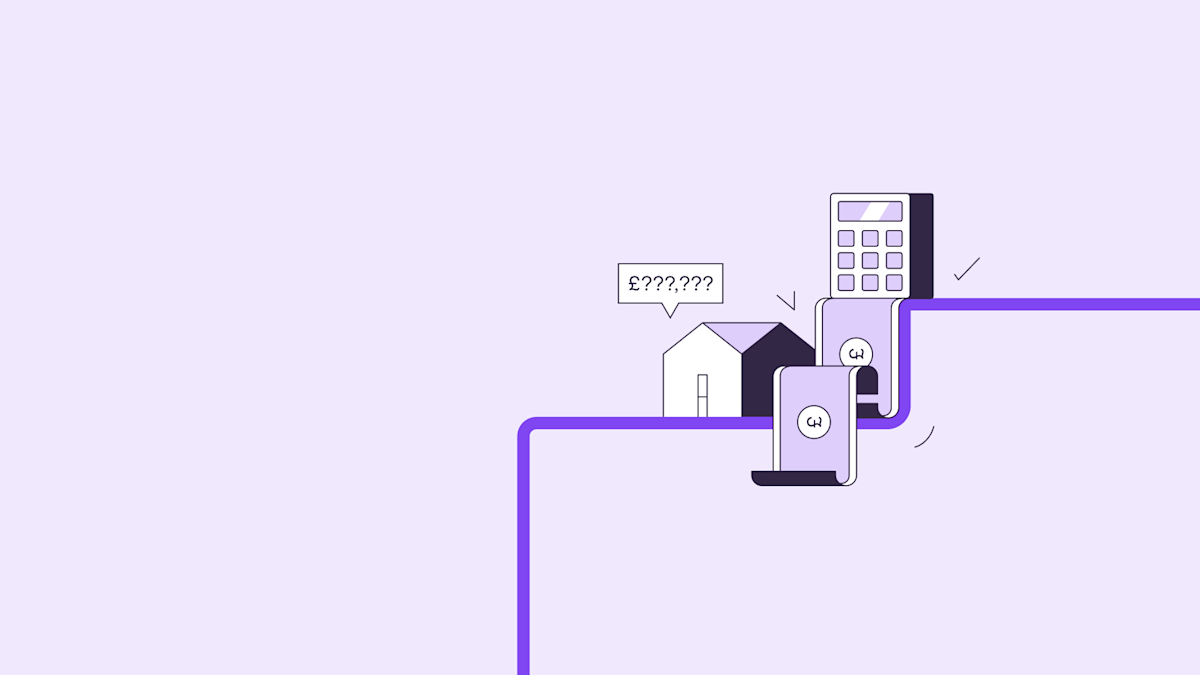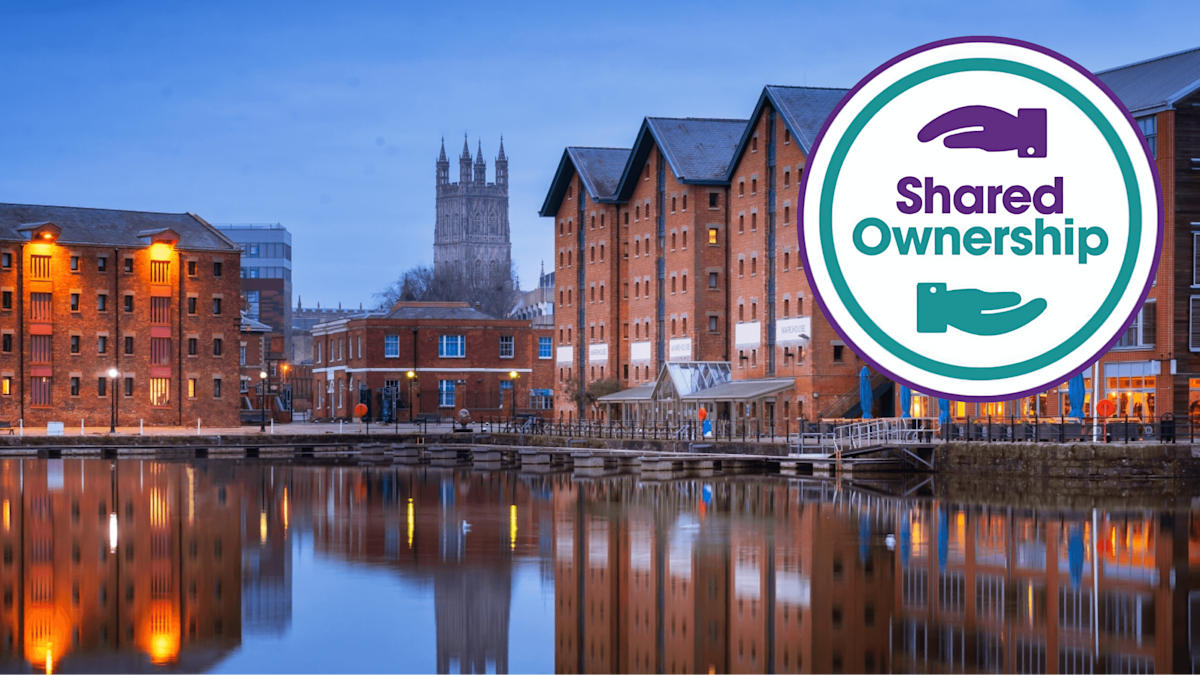What is a new-build mortgage?
Mortgages for new-builds aren’t wildly different to mortgages for traditional homes, but there are a few things it’s good for buyers to know in advance.
A new-build mortgage is a standard mortgage used to buy a newly built home, usually one that has been completed in the last two years and has never been lived in.
While the process is similar to a regular mortgage, lenders may have stricter criteria, such as larger deposit requirements or shorter deadlines if you are buying off-plan.
What is a new-build property?
A new-build home is a property that’s been constructed within the past two years that no one has lived in yet.
New-build homes can be bought ‘off-plan’, which means the developer is selling them before the construction work has begun or finished, or as a completed home.
A home that’s recently been renovated to such an extent that a whole new dwelling has been created can also qualify as a new-build home.
Securing a mortgage for a new-build home is largely the same as getting one for a more traditional home, but there can be small differences in the process, especially if you’re buying off-plan.
Let’s go through the essentials.
The benefits of buying a new-build home
Apart from the obvious joys of knowing that you are the first people to sleep, eat, work-from-home and enjoy living in your new home, buying brand new also has other practical advantages.
Let’s take a quick look before we get into the mortgage stuff.
Style and interior design
If you’re buying off-plan, the developer will often involve you in decisions about the build, from the layout options to the style of kitchen and bathroom fittings.
You might choose the finishing colours and materials used, or make decisions on the types of windows, doors and flooring installed to truly personalise your living space.
Warranties
As if bagging your dream home complete with your perfect kitchen isn’t enough, new-builds also come with warranties. So any problems that crop up are usually covered.
You won’t have to fork out for any major structural repairs for 10 years, thanks to protections offered as standard under the The Consumer Code for Home Builders.
New-build warranties: everything you need to know
Energy efficiency
New-builds also offer higher efficiency, with 80% having an EPC rating of A or B, making them much cheaper to run and kinder to the planet.
Why buying a new-build home could save you money
Chain free
There are no complicated chains involved in your purchase. And if you’re a first-time buyer, that means you aren’t relying on anyone else (other than the developer) for the purchase to go ahead.
New-build mortgage criteria
With any mortgage, lenders will assess your full financial situation when you apply for a loan.
New-build mortgages can come with stricter criteria for lending, often requiring a larger deposit.
Mortgages are typically based on income multiples - usually up to 5x your salary.
Lenders will review your monthly spending, existing financial commitments, dependents and credit score to work out what they can offer you.
Being in strong financial shape before applying can improve your chances.
Explore deals from high street lenders and speak to a mortgage broker for tailored advice.
Am I eligible for a new-build mortgage?
If you need the standard mortgage criteria, such as having a stable income, good credit history, and the required deposit, then yes, you can apply for a new-build mortgage. There are no special restrictions on who can apply, but lenders may be more selective with new-build properties, so meeting the basics is key.
How much deposit do I need to buy a new-build home?
Your mortgage deposit needs to be at least 10% of the property value. For example: If the home you want to buy is £200,000, you’ll need a deposit of at least £20,000.
Just like any other mortgage, new-build mortgages are based on an agreed loan-to-value (LTV) ratio. This means you'll need to contribute a percentage of the property's value as a deposit.
As a general rule of thumb, the larger your deposit, the lower the interest you’ll be charged on your mortgage.
For new-build homes, mortgage lenders often apply stricter LTV limits. A typical LTV for a new-build house is 85%, meaning you'd need to save a 15% deposit. For new-build flats, some lenders may offer an LTV of just 75%, requiring a 25% deposit.
However, the Government’s Mortgage Guarantee Scheme is still in place, allowing some buyers to borrow up to 95% of the property’s value, so you may only need a 5% deposit, depending on your circumstances.
The timeline for securing a new-build mortgage
Timing is critical for any mortgage offer and most are valid for six months.
If you’re buying a home off-plan, it’s worth checking that the mortgage offer can be extended in case there are any unforeseen delays down the line.
Lenders often have processes in place for extending mortgage offers, so just make sure you check the small print and discuss any potential scenarios with your lender or broker.
For most new-builds you pay a reservation fee, then you have 28 days to secure your mortgage and exchange contracts.
If your mortgage is straightforward, you should be able to secure it in plenty of time and move into your new home at record speed.
Buying schemes for new-build mortgages
There are a few buying schemes that can make it easier to afford a new build home. Whether you are buying your first property, moving to a bigger place or even building your own, these options can help lower the amount you need to save or make your monthly payments more manageable. Here are some of the main ones to consider.
Deposit Unlock
Deposit Unlock enables first-time buyers and second-steppers to buy a new-build home with just a 5% deposit.
Major house builders from Barratt to Vistry are taking part in the scheme, which is available for new-build houses or two bedroom+ apartments.
Find out more about Deposit Unlock
New Build Boost
New Build Boost is a mortgage scheme that aims to help homebuyers with a smaller deposit buy a new-build home. The scheme combines a traditional mortgage with an interest-free equity loan, allowing you to access 80% loan-to-value (LTV) mortgages with a smaller deposit.
In a nutshell:
New Build Boost by Gen H provides an 80% LTV mortgage with a 15% equity loan, with buyers needing just a 5% deposit
The equity loan is interest-free for the whole mortgage term duration
For the first five years, the equity loan's value is fixed, then it adjusts in line with the market value, capping the repayments at twice the original loan amount
New Build Boost enables buyers to own the entire property, unlike other schemes
Find out more about New Build Boost
Shared Ownership
With Shared Ownership, you only pay the deposit on - and need a mortgage for - the share of the property you're buying.
That means the amount of money you’ll need to borrow is a lot lower than it would be if you were buying the whole property outright.
The share you buy is usually between 25% and 75% of the total property, but with some homes, it can be as little as 10%.
You pay a mortgage on the share you own, and reduced rent on the portion you don’t own.
That part is usually owned by a housing association, private developer or local authority.
As time goes on, you can increase your share in the property by buying more of it in increments, until you own all of it outright or are ready to sell it.
Find out more about Shared Ownership
Help to Build
The Help to Build Equity Loan Scheme is a government initiative designed to financially support self-builders who want to create their own homes.
You’ll need to put down a 5% deposit and get a self-build mortgage, which the government tops up with an equity loan of up to 20%, rising to 40% in London.
Find out more about Help to Build
How to get a new-build mortgage?
Check your finances Make sure you have a steady income, a good credit score and enough saved for a deposit. Lenders will want to see you are financially stable.
Research new build properties Search new-build homes available in your area and check if they meet lender criteria, including any specific deposit requirements.
Speak to a mortgage broker or lender Use a mortgage calculator and contact a high street lender or mortgage broker to help get the best deal for you.
Decide if a scheme is for you Decide if you’re using a scheme like Deposit Unlock or Shared Ownership as this will help you understand how much you need to borrow.
Reserve your new build home Once you have found the right property, reserve it with the developer, often by paying a reservation fee.
Find a conveyancer Once you’ve made a decision to make an offer, appoint a conveyancer (that’s a lawyer who knows all about home buying)
Complete your mortgage application Once you have paid your reservation fee, you can officially apply for your mortgage, which will need to be secured within 28 days so you can exchange contracts.
Valuation and survey The lender will arrange a valuation to confirm the property’s value. New builds usually have fewer issues, but this step is still essential.
Mortgage offer and exchange contracts If all goes well, the lender will issue a formal mortgage offer. You then exchange contracts with the developer to make the purchase legally binding.
Completion and move in On completion day, the mortgage funds are transferred, and you receive the keys to your new-build home.
Following these steps will help you secure a mortgage smoothly and move into your new build with confidence.
How long does a mortgage offer last for a new build home?
New-build homes can face construction delays, especially when you buy off-plan (before the home is finished). To account for this, many lenders offer mortgage offers lasting 6 to 9 months, compared to the 3 to 6 months typical for standard property purchases.
This extra time is designed to give developers the chance to finish building and hand over the keys without you having to re-apply for your mortgage mid-way through.
What are the potential pitfalls?
Despite the extended timeframe, it’s worth thinking about what you’ll do if the delay stretches beyond your mortgage offer's expiry date. If that happens:
You may need to reapply: which can mean more paperwork, updated financial checks and another property valuation.
Your financial situation may have changed: if your income drops, credit score dips or interest rates rise, you may no longer qualify for the same deal (or at all).
The lender could decline to extend the offer: this can leave you scrambling to secure a new mortgage just as your home is finally ready.
How to avoid problems
Choose a lender that offers longer validity for new-build offers as some go up to 12 months.
Stay in regular contact with your broker or lender.
Keep your finances steady during the waiting period and avoid big purchases or taking on new debt.
If delays seem likely, ask early about extending your offer to avoid a last-minute panic.
In short, new-build mortgage offers tend to be more generous with time, but delays can still pose a risk if not managed carefully.





